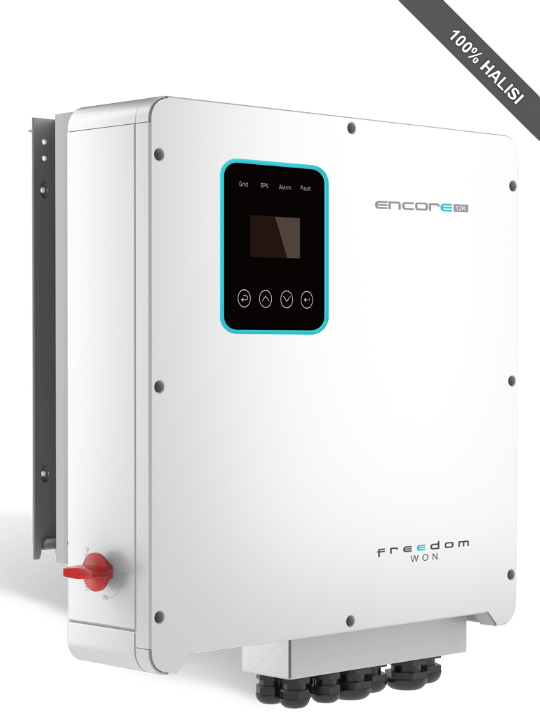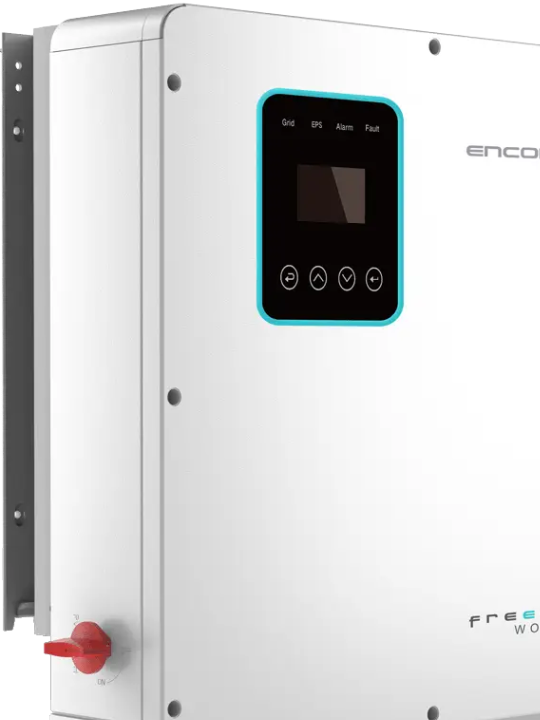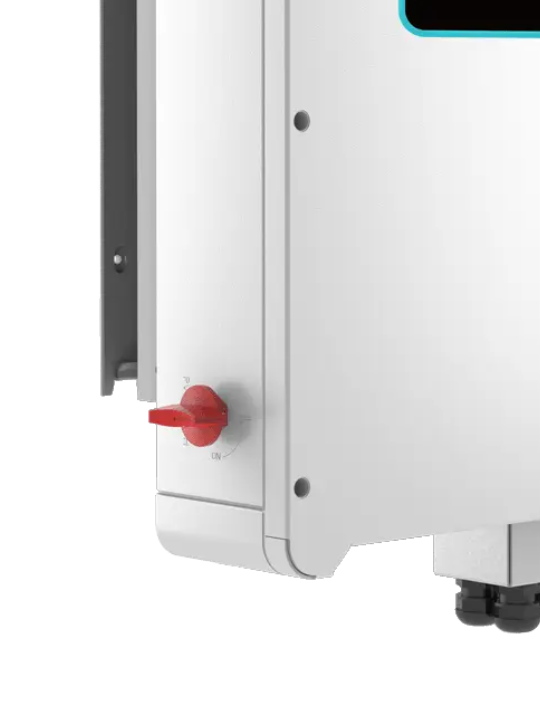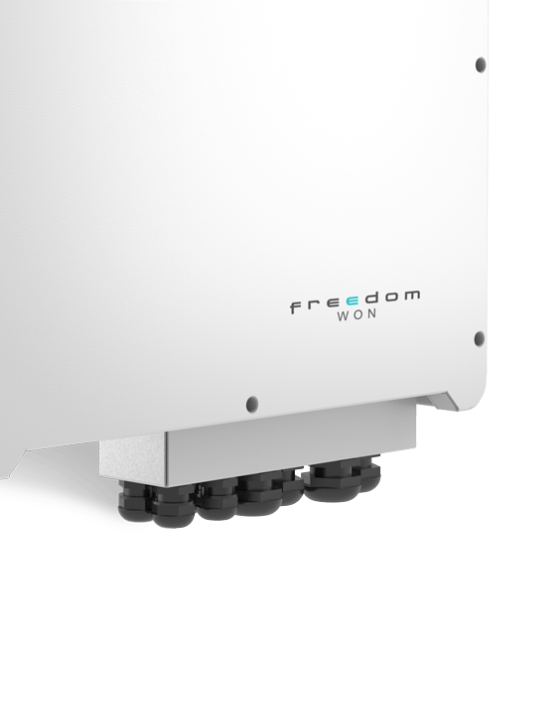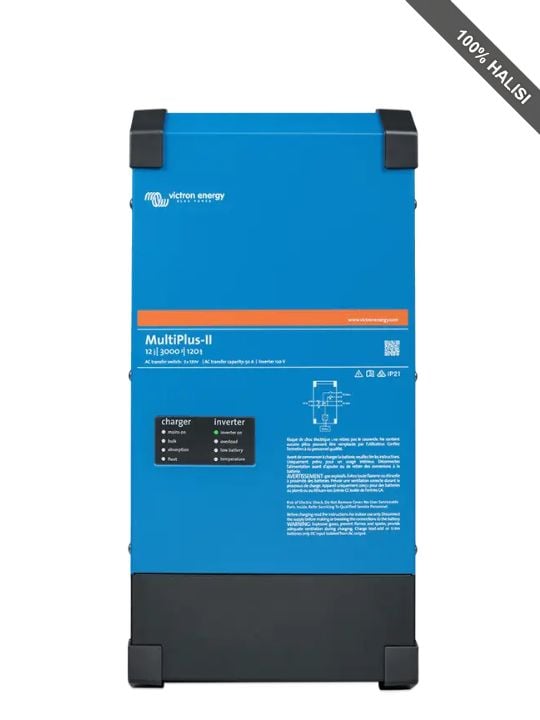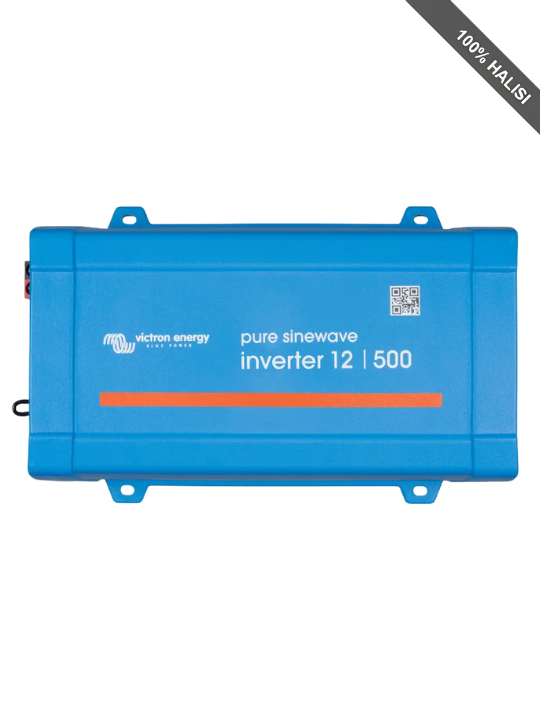The Freedom Won Encore 12 kW HV (High Voltage) is a three-phase hybrid inverter designed for residential to light commercial applications. It integrates solar PV input, battery storage (lead-acid or lithium), and grid or generator backup in one compact unit. Key selling points are high efficiency, wide input voltage range, robust protections, and compatibility with multiple sources (solar, grid, generator). In the Tanzanian context—where grid instability, rising electricity costs, and increasing solar adoption are realities—this inverter offers a way to reduce dependency on the grid, improve reliability of supply, and help manage costs.
Features & Benefits
- High DC voltage support (up to ~1,000 V): Allows longer strings of solar panels, lower losses in wiring, more flexibility in PV array layout. Useful in Tanzania where panel spacing or orientation may vary and installers want to minimize cable costs.
- Wide MPPT voltage range (180-850 V): Better ability to harvest energy under different weather / light / shading conditions; can work efficiently in morning/evening etc.
- High efficiency (>98%): Less energy lost in conversion; more solar power gets used / stored / delivered. Reduces payback period.
- Support for both lithium and lead-acid batteries: Flexibility in battery choice (cost, availability, lifetime). Lithium is more durable; lead acid often cheaper and more common.
- Robust protections + IP65 enclosure + wide temperature range: Durable under harsh environmental conditions: heat, dust, rain. Tanzania has hot climate, sometimes dusty or humid areas. This ensures reliability and lower maintenance.
- Low noise emissions: Useful for residential and commercial settings where noise may be a concern.
- Multiple communication options (WiFi, GPRS etc.): Enables monitoring and maintenance. For remote or rural settings, connectivity via GPRS/4G can help.
- Backup / EPS capability: Ability to supply power during grid outages is important in many parts of Tanzania where grid supply may not be fully reliable.
- Parallel operation capability (if available or via stacking): For future expansion or scaling up of capacity.
Use Cases
Here are some realistic use cases in Tanzania:
- Residential homes (urban or peri-urban): To reduce electricity bills by using solar + battery during day, and switching to grid (or using battery) at night or during outages.
- Small commercial establishments: Shops, offices, clinics, guesthouses, where load is higher and power reliability is critical. For example, running lighting, air conditioning, refrigeration etc.
- Rural off-grid or weak-grid areas: Where grid supply is erratic or voltage drops are common. This inverter can help stabilize power supply, reduce diesel generator use, or even enable mini-grids.
- Agricultural settings: Farms needing power for pumping, milling, cold storage etc., especially in sunny areas. The ability to run mixed load (single-phase and three-phase) helps support motors, etc.
- Backup for telecom towers or remote infrastructure: Require reliable power; solar + battery hybrid solutions are increasingly used. This inverter’s efficiency and robustness are assets.
Value Propositions
In a Tanzanian market context, the Encore 12 kW HV offers several strong value propositions:
- Cost savings: Lower electricity bills via self-consumption of solar energy; reduced generator/diesel costs; fewer fuel imports; lower maintenance compared to generators.
- Reliability and resilience: Ability to ride through grid outages and deliver continuous power to critical loads.
- Flexibility and scalability: The wide input voltage, ability to choose battery type, multiple interfaces for control/monitoring make system upgrades, expansion, and adaptation possible.
- Durability and lower total cost of ownership: High efficiency and strong protection features reduce losses, component wear, and maintenance; IP65 and wide temp range help in harsh climates.
- Environmental benefits: Reducing reliance on fossil fuel based backup or grid supplied power; lowering carbon footprint; possible access to green energy incentives, if such emerge or are available.
- Local compatibility: Tanzania has 50 Hz grid frequency; many rural/urban areas with unstable grid voltage; three-phase supply is common in commercial settings. This inverter matches these requirements. Also, battery cost and solar panel costs have been dropping in East Africa, making hybrids more attractive.
Local Market Positioning
To position this product well in Tanzania, the following aspects will be important to emphasize / align:
- Price point / Payback: The initial investment cost will matter. For many residential users, lead-acid batteries are cheaper upfront but have shorter lifespan; lithium may cost more but better in long run. Showing return on investment (ROI) with current electricity tariffs (for example from TANESCO or private providers) will be persuasive.
- After-sales support / service network: Local availability of spare parts; trained installers; warranty enforcement; maintenance. Tanzania’s geography and transport infrastructure means that having local support is vital.
- Financing options: Many potential customers will need financing or instalment plans (micro-finance, pay-as-you-go, leasing etc.) because upfront cost is high.
- Import duty / taxation: Making sure the product complies with Tanzanian import regulations, duties, certifications. If there are incentives (e.g. tax breaks for solar equipment) that should be leveraged.
- Certifications / Standards: IEC / EN certifications are globally recognized; highlighting these builds customer confidence. Also matching local grid-code / electrical standards (voltage, frequency, licensing) is essential.
- Reliability under local conditions: Heat, humidity, dust, sometimes altitude in some regions. IP rated, temperature ratings should be emphasized; also real-world performance examples or references in similar climates help.
- Complementarity with local solar panel and battery supply: Ensuring compatibility with locally available solar panels, batteries (particularly battery voltages), inverters etc. If many battery systems in Tanzania are of lower voltage, need to ensure connection compatibility; or promote battery combinations that work with the inverter’s required voltage range.
- Target customers: Commercial users, businesses, institutions (schools, hospitals), high-end residential, rural electrification projects, solar contractors etc.
Possible Challenges / Considerations
It’s also worth being realistic about possible limitations or challenges:
- High initial capital cost: Even though efficiencies and savings come, the upfront cost (inverter + battery + panels + installation) is significant.
- Battery cost and availability: Lithium batteries are more expensive; lead-acid cheaper but lower life / more maintenance. Importation, supply chain quality and local environmental effects (e.g. temperature) can impact battery life.
- Grid regulation and policy: Net metering policies, import regulations, subsidies, and tariffs will impact attractiveness. Also local standards (wiring, safety) must be met.
- Maintenance and technical expertise: Need skilled installers, technicians who understand hybrid systems. Worst case: poor installation reduces performance or even safety.
- Currency fluctuations / import duties: These can make costs unpredictable in markets like Tanzania.
Technical Specification
| Model |
Encore 12kW HV Three Phase Hybrid Inverter |
| Rated Output Power |
12kVA / 12kW |
| PV (Solar) Input |
Max. DC Power: 18kW |
|
Max. DC Voltage: 1,000V |
|
Max. Input Voltage: 700V |
|
MPPT Voltage Range: 180–850V |
|
MPPT Trackers / Strings: 2 / 1 per tracker |
| AC Output (Grid/Load) |
Nominal Voltage: 400V 3-phase (3W+N+PE) |
|
Voltage Range: 176–270V |
|
Frequency: 50/60Hz |
|
Max. Output Current: ~19.1A |
|
THDi: <3% |
| Battery Compatibility |
Battery Voltage Range: 125–600V DC |
|
Working Battery Voltage: 150–550V DC |
|
Max. Charge/Discharge Current: 50A |
|
Supported Types: Lithium, Lead-acid |
| Efficiency |
Max. DC to AC Efficiency: 98.2% |
|
Euro Efficiency: 97.5% |
|
MPPT Efficiency: 99.9% |
| Protection & Safety |
Surge Protection: DC & AC Type II |
|
Reverse Polarity, Short Circuit, Over-voltage, Over-current, Insulation Detection, Anti-islanding |
| Environmental Ratings |
Operating Temp: −25°C to +60°C |
|
Storage Temp: −25°C to +60°C |
|
Noise Level: <25dB |
|
Altitude: Up to 4,000m (derating >2,000m) |
|
Ingress Protection: IP65 |
| Communication & Monitoring |
Interfaces: LCD Display, App, RS-485, CAN, WiFi, GPRS/4G |
|
Remote Monitoring Supported |
| Mechanical Data |
Dimensions: 566 × 596 × 220 mm |
|
Weight: 32 kg |
| Compliance Standards |
IEC/EN 62109-1 & 2, IEC/EN EMC Standards |

